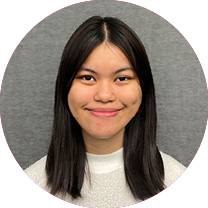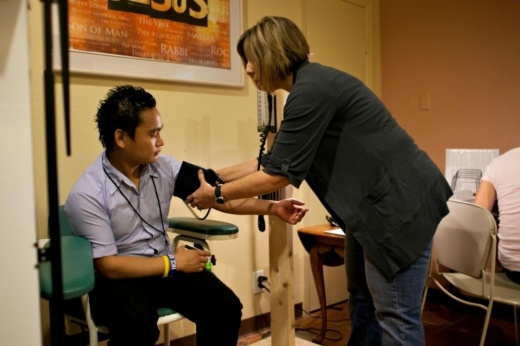The clinic, located in Northeast Austin, received $100,000 to use over a 12-month term, which began April 1. The agreement also allows an extension option for another 12 months.
What it does
Hope Clinic provides free primary health care to underserved communities residing in the Austin area. These range from giving prescription and over-the-counter medications to treating chronic diseases and doing basic lab work.
In 2022, the clinic served 375 patients with over half identifying as Asian and provided 715 free medical appointments.
Hope Clinic also supports patients’ social determinants of health through nutrition education and connecting them with outside organizations, such as the Central Texas Food Bank and the Asian American Resource Center, so patients can access safe housing, healthy food and secondary care.
“It's very hard to be in good health if you are worried about where your next meal is going to come from or if you can pay your rent that month,” Hope Clinic Executive Director Jodi Schrobilgen said. “So that's what this funding will do: allow us to have a person on staff who can work with these people one on one and make those connections.”
The backstory
This is the first time Hope Clinic has collaborated with APH and received a grant of this scale since the clinic's inception in 2010, Schrobilgen said.
“Austin Public Health approached us because we are known in the community for already working fairly closely with Asian American communities for primary health care,” Schrobilgen said. “They approached us to see if it might be a good match to partner with us to do this work.”
Austin’s Asian American Quality of Life Commission—a group that advises City Council on AAPI-related issues—recommended that APH collaborate with Hope Clinic when the Northwest Austin Universal Health Clinic closed last summer, said Laura La Fuente, APH assistant director for health equity and community engagement. Similarly, the NAUHC received funding from APH beginning in 2019 for mental health and wellness support services, primarily serving the AAPI community and uninsured patients in the Austin area.
“Knowing that we had a short amount of time and that there was a critical need that wasn't being served with this clinic closing, we chose to do this direct award, at least for these two years, with the Hope Clinic,” La Fuente said.
The context
Because most of its patients don’t speak English as their first language, Hope Clinic uses interpreter services such as Jeenie to ensure patients get the exact treatment they need, Schrobilgen said. The clinic spent over 15,000 minutes on interpreter services last year.
Selena Xie, the president of the Austin EMS Association, said based on her emergency medical services calls from patients, a lack of language accessibility proves to be a main barrier to immigrant communities seeking health services.
“A lot of people will go to the doctor and just not get the appropriate thing translated,” said Xie, who is an active paramedic for Austin Travis County EMS and a nurse at Dell Seton Medical Center’s surgical intensive care unit. “A lot of immigrant communities just nod, try to go along with it, and don't understand what care they need [and what] medicine they need to be taking.”
Some prevalent chronic diseases within the AAPI community include diabetes, cardiovascular disease and hypertension, according to the 2022 demographic report from Central Health, Travis County's health district.
“Let's say [a patient] has diabetes, and it's affecting their eyes. That requires specialists we don't have because we're a primary care clinic, and it can be very challenging to find an ophthalmologist who is affordable,” Schrobilgen said. “We will use some of this funding to help them locate those types of eye specialist programs that will allow them to manage that condition.”
What's next
Schrobilgen said the funding will help Hope Clinic have more staff in constant communication with patients to ensure they can access the care they need. The clinic heavily relies on medical volunteers, and Schrobilgen is the only staff member who works full time.
“The funding from Austin Public Health will allow us to increase what we can offer our patients,” Schrobilgen said. “Services that we've tried to do in a more ad hoc way, we’ll now be able to do in a more structured way and follow up to be sure that people are making progress toward those needs being fulfilled.”
By the numbers in 2022:
- Just over 50% of Hope Clinic's patients identified as Asian.
- The clinic provided 715 free medical appointments.
- About 375 patients used the clinic's services.
- Over 15,000 minutes of interpreter services were provided.
- The clinic provided 1,747 free medications.
- The clinic provided over 390 COVID-19 and flu vaccinations.
- Volunteers donated 2,629 hours of their time.





